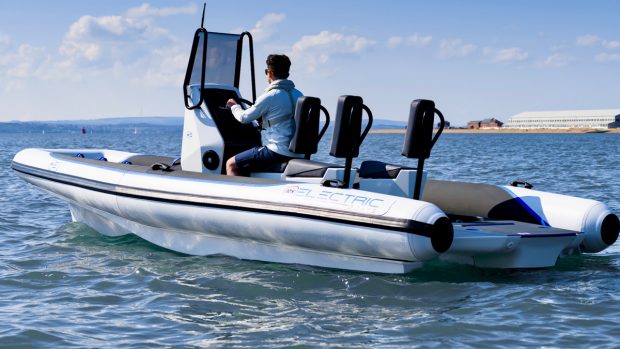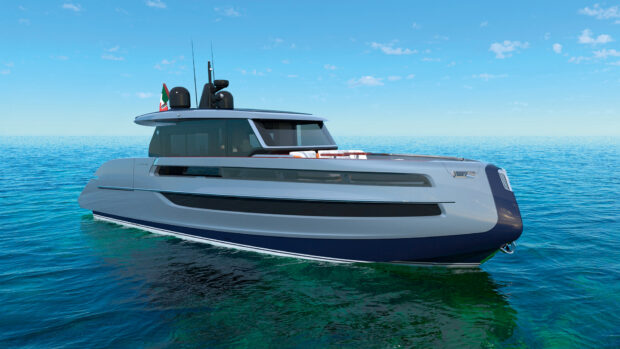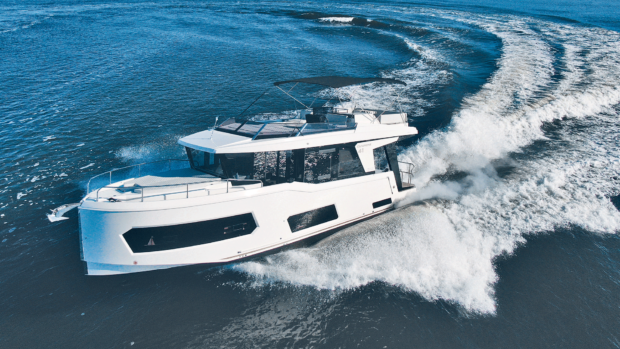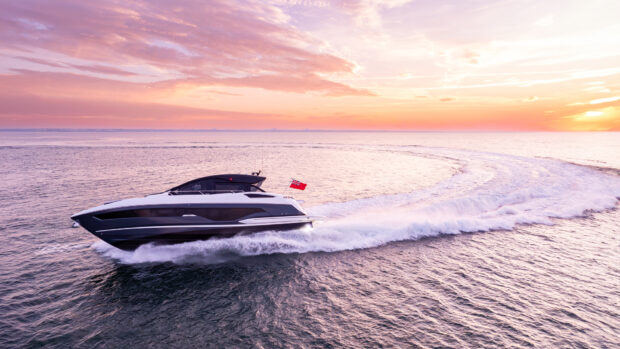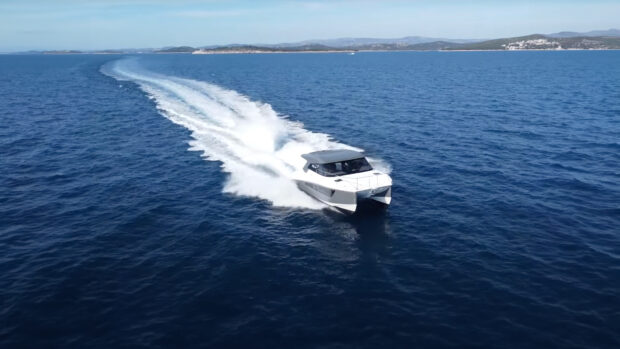Will marine officials patrol our waters?
The RYA have shed some light on the drink boating laws planned by the Government with a Q&A document published today.
Minister for Transport Stephen Ladyman, pictured, announced last week that his department will “press ahead” with introducing an alcohol limit for leisure boaters.
The proposed limit would be the same for car drivers and commercial mariners, and would apply to those involved in the navigation of any vessel capable of more than seven knots, or longer than 7m.
Click here for the original story.
Read on the for full document published by the RYA or visit the RYA website .
In response to the Department for Transport’s recent announcement that drink drive limits are to be introduced for leisure boaters, rya.org.uk Editor and personal member Jake Frith held a question and answer session with Neil Northmore, RYA Government Affairs Adviser and Gus Lewis, RYA Legal Manager:
JF: In fighting this legislation, isn’t the RYA sending out the message that it condones drink driving for boaters?
NN: The RYA doesn’t condone drink driving for boaters and we have sought for many years to encourage boaters to act responsibly in this regard. The RYA will, however, always oppose bad legislation that is unworkable, disproportionate and unfair. We will therefore, despite the Government’s determination to legislate, be challenging whether this proposed regulation will be fair and enforceable.
GL: The RYA does not believe that anybody should use boats in an irresponsible manner that could present a risk to anyone else, including under the influence of alcohol.
JF: So where does that leave boaters now? Does this news from the DfT mean that the RYA has failed in saving UK boaters from this latest bit of unnecessary legislation?
GL: No. The regulations have not been put in place and in fact have not been released for consultation as of yet. According to the DfT the draft regulations will be available for consultation before the summer recess. The RYA will engage with Government at all levels in challenging the legislation where needed.
JF: Stephen Ladyman said last week that ‘in setting the exclusion limit for non-professional mariners at 7 metres and 7 knots we are providing the best balance between improving safety and avoiding unnecessary legislation’. Does the RYA agree?
GL: We will need to consider the draft regulations carefully in order that the application of the proposed exclusions are clearly defined for marine officials. We know for instance that there are always ambiguities in measuring length.
JF: Well the exclusions relating to speed that the DfT have presented certainly need clarifying. How do you define the maximum speed of a sailing skiff, a windsurfer or a tender which with only one person in it will exceed 7 knots but when loaded up with four people will not? Even outside of the exclusions, how do you work out who’s ‘navigating’ a motorcruiser with 10 people aboard running under electric autopilot?
GL: In principle the Government’s proposals do leave lots of questions unanswered, but of course we need to see the draft regulations in order to make a valued assessment.
JF: So are we going to end up with some kind of marine traffic police department running around with blue flashing lights and breathalysers?
GL: As we understand it Marine Officials will be appointed who will have the power to detain a vessel if they reasonably suspect that a person who is or may be aboard the vessel is committing or has committed an offence, pending the arrival of the police to carry out a preliminary test. In the past the RYA has opposed such measures on the basis that the innocent could be detained for an unspecified time pending the arrival or non-arrival of a police officer.
JF: In areas such as the Norfolk Broads, drinking and boating is perceived as being a problem. Wouldn’t this legislation ease the problems they have?
NN: The problems in the Norfolk Broads seem to be mostly concerned with people returning to their boat late at night after a visit to the pub rather than actually navigating. Jamie Campbell, Vice Chairman of the Broads Tourism Forum has already echoed doubts over how it could be enforced and has cited the proposals as “a good example of legislation that is not required”. Drinking on board whilst moored up is another issue in the Broads which while it is boating related lies outside the scope of this legislation. This legislation only deals with vessels underway.
JF: If it is going to become law, how long will the process take?
NN: The consultation phase normally lasts 3 months, but we will encourage the Government to take as long as necessary in order to ensure that they get it right. Any intervention by MPs could also prolong the process. It is possible that it could be law by the end of this year.



